Nagasasa and Anawangin Cove – Camping Travel Guide
Zambales is well-loved for its pristine beaches and magnificent mountain ranges. The province is a camping haven and two most visited camping hubs here are Nagsasa and Anawangin Cove. These beaches offer an immersive experience in nature and a chance to put your girl or boy scout skills to the test.
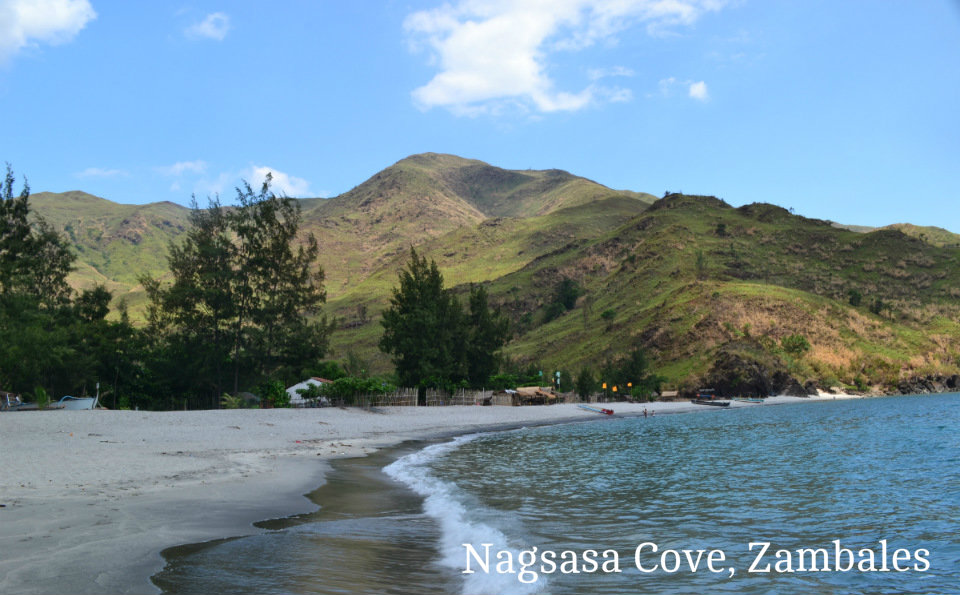
For our trip to Anawangin and Nagasasa Cove, my friends and I did it partly DIY and partly packaged tour. From Manila we rode a bus to the town of San Antonio, Zambales. As advised by the kundoktor, we got off at San Antonio, here we would meet our tour coordinator.
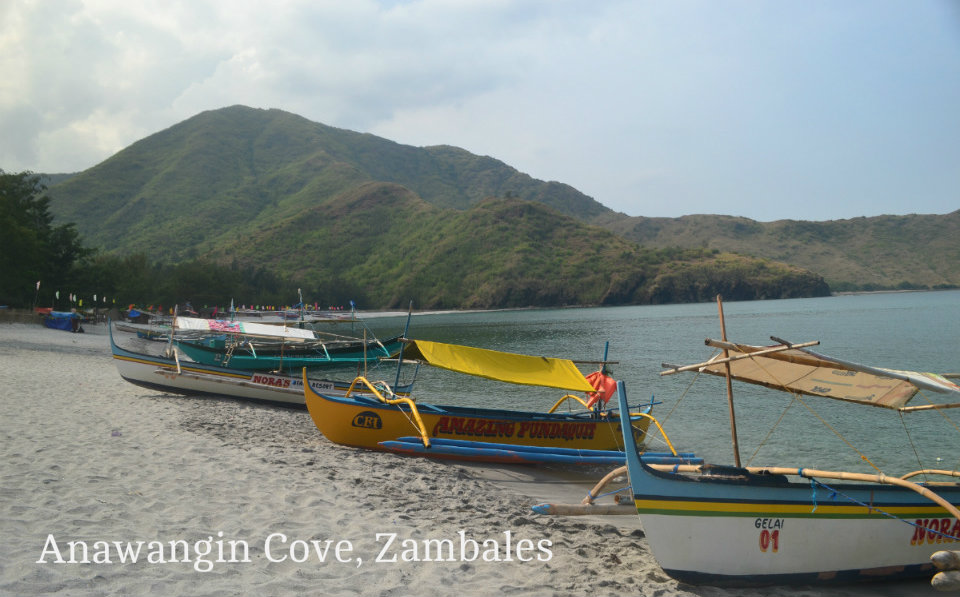
The bus trip took three hours. At San Antonio, we did a quick shop at the wet market behind the Municipal Hall in Iba. Across the municipal hall, there was a tricycle terminal. We quickly hired one and got to Pundaquit Beach in around 5 minutes.
We were met by our tour organizer at Pundaquit Beach, and here we got on the boat that would take us to Nagsasa Cove. This was where we would camp out for the first night.
The boat trip took about an hour. The ocean was calm and the sun was low as we traveled to the cove with another group, all of us silent, transfixed at the ocean scenery and the magnificent mountain range in the backdrop.
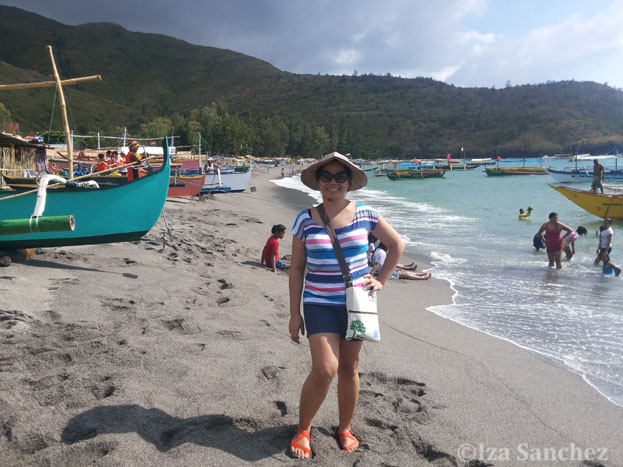
Pundaquit Beach
I wasn’t sure what to expect from this trip since my last camping trip was more than a decade ago at Mt. Batulao in Batangas. That trip was a challenge and I still recall the eerie feeling of walking through six-feet grass.
However, this camping trip was all about blue skies and the beach and I guess that was enough inspiration to embark on another rough and ready outdoor adventure.
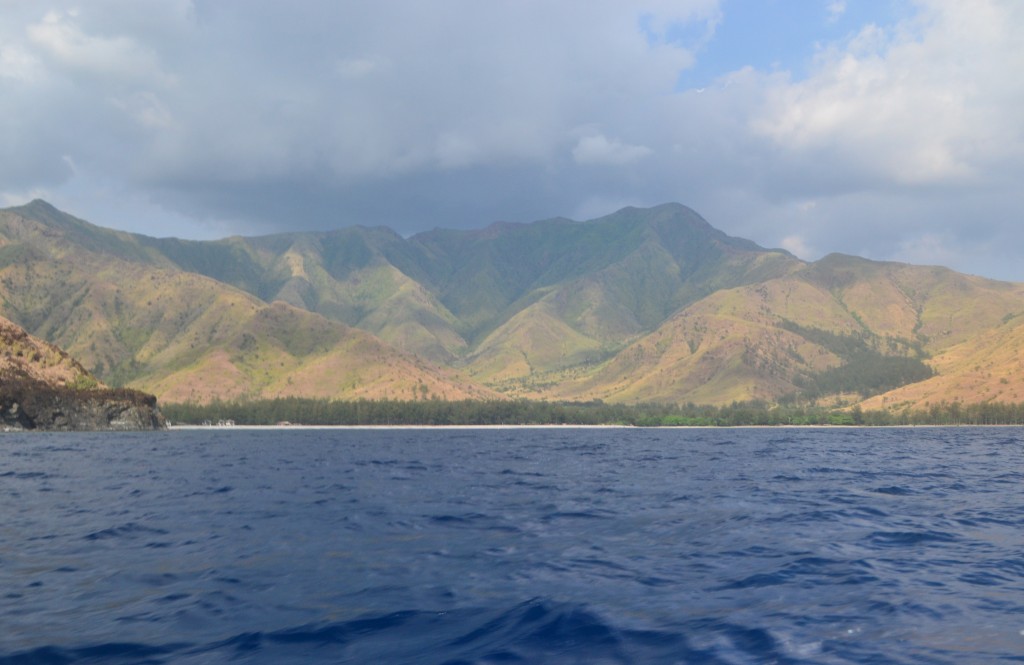
Nagsasa and Anawangin coves are delightfully isolated, but electricity and wifi are beyond our reach here. Nonetheless, this forces you to disconnect from everything digital and truly immerse in the natural surroundings. Upon arriving, it was also a comfort to find bathrooms with plenty running water, they were crude but at least clean.
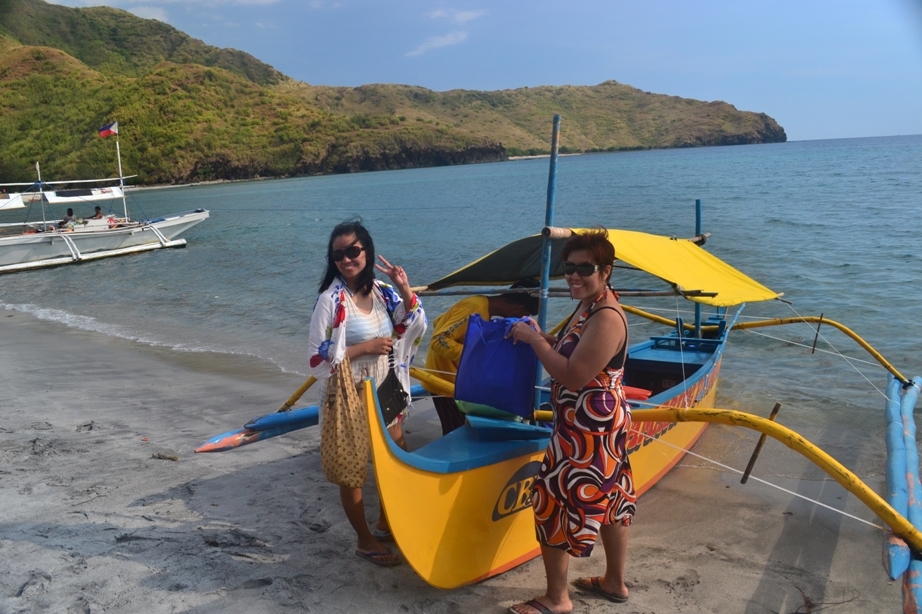
Our small but reliable bangka that carried us safely around the islands.
We spent our first night camping at Nagsasa Cove. It was easy to set-up our campsite with the assistance of the locals. They were very kind and helpful. They met us at the shore, quickly grabbed our bags and carried them to our beach hut and together we started setting things up.
Many of the locals here are from Aeta communities, easily identifiable by their dark skin and kinky hair.
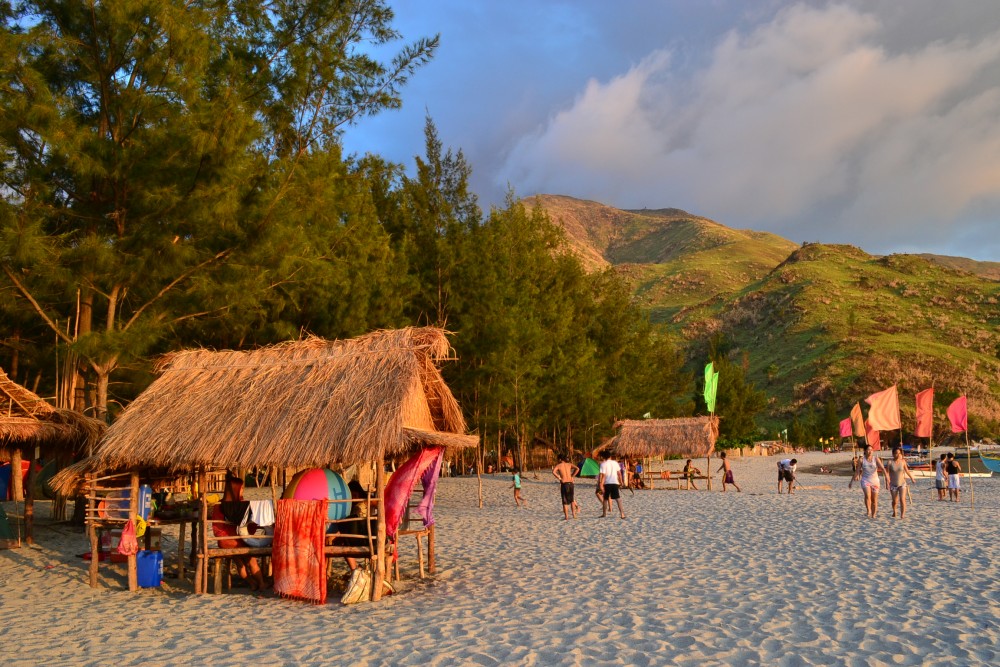
Nagsasa Cove
Aetas are tribal people who live in closely-knit communities in the mountainous regions of Luzon. Historians suggest that they are the earliest native inhabitants of the Philippines. They are known to be nomadic and thrive on fishing and hunting.
Many present day Aetas have adapted to modern ways and earn a living as boatmen, travel guides, or food vendors. Our Aeta guides helped us to cook. We spoke in Tagalog but they are also fluent in Ilocano.
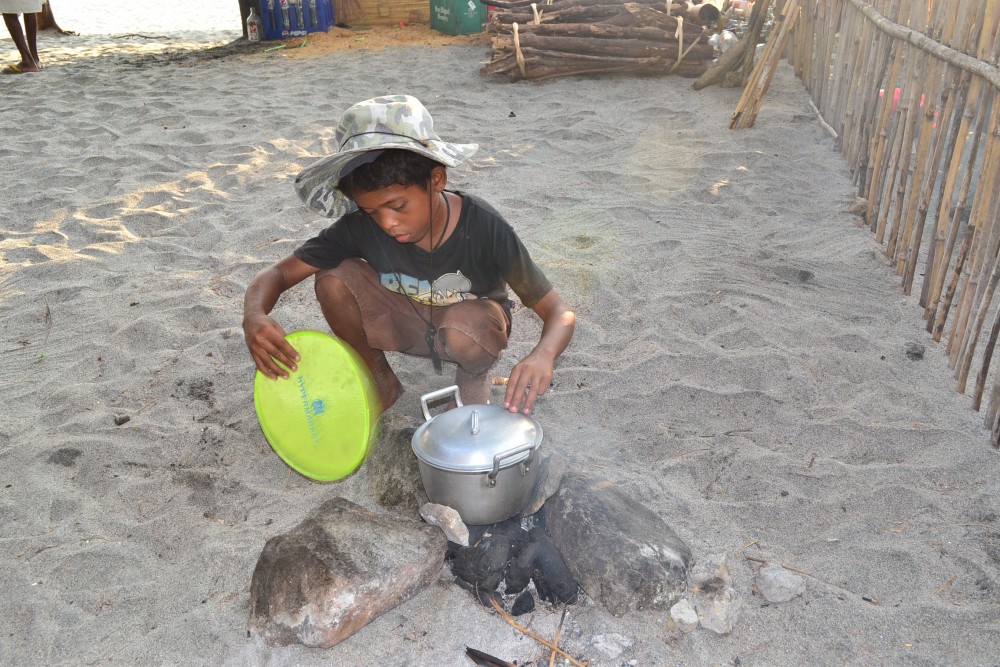
An Aeta father and his son taught us the basics of cooking rice charcoal style, it was a tedious, time-consuming task that required persistent fanning to keep the flame alive, I really missed my rice cooker back home as I worked on this.
Once our campsite was all set, we spent the rest of our day swimming, snorkeling, and soaking in the natural sceneries. At the time of our trip, we were allowed to have a bonfire by the beach, this was a true delight.
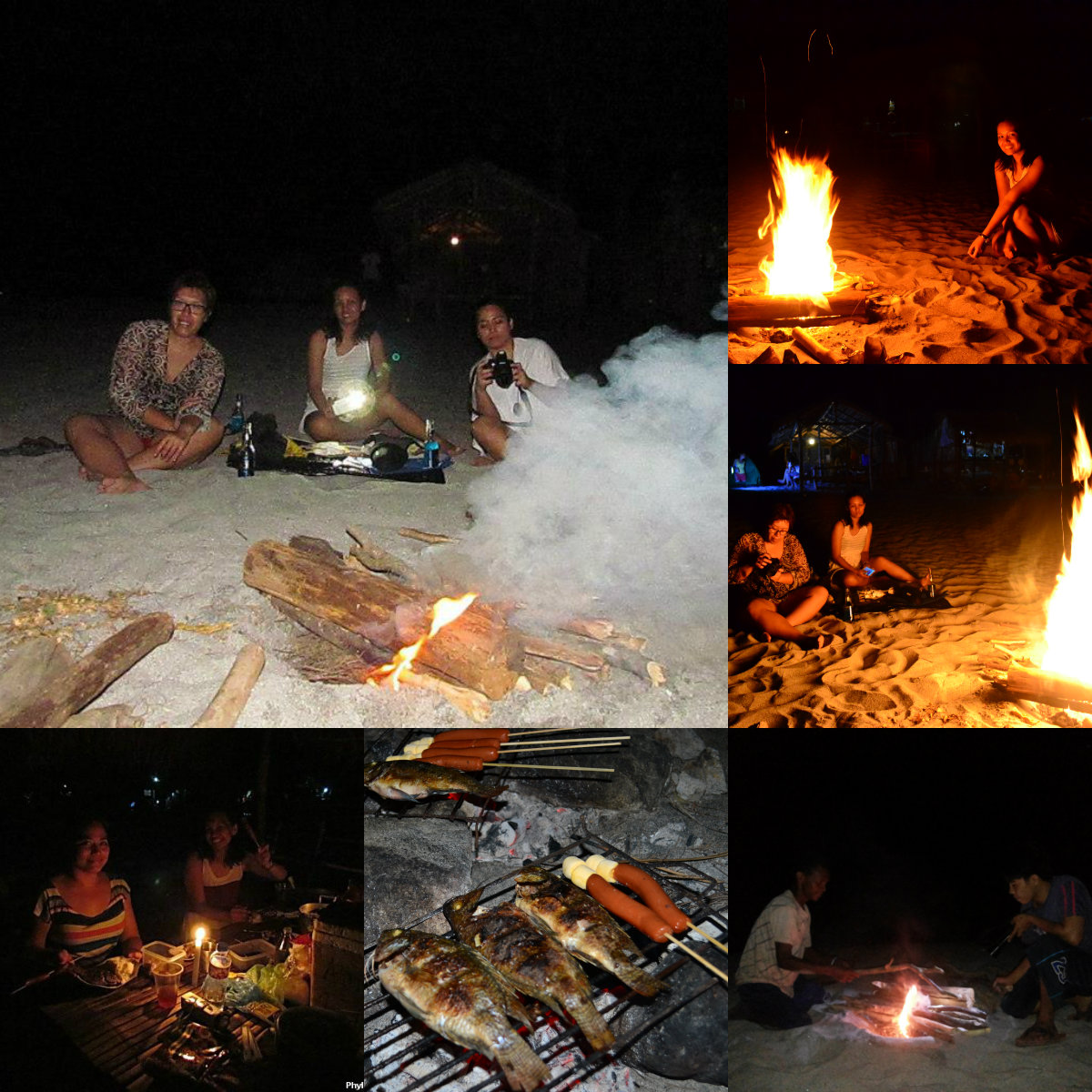
Our first night camping at the beach
Under the stars we sat by the the bonfire snacking on a bizarre mix of chips, roasted marshmallows, and beer and swam a bit while the water was still warm from the afternoon sun.
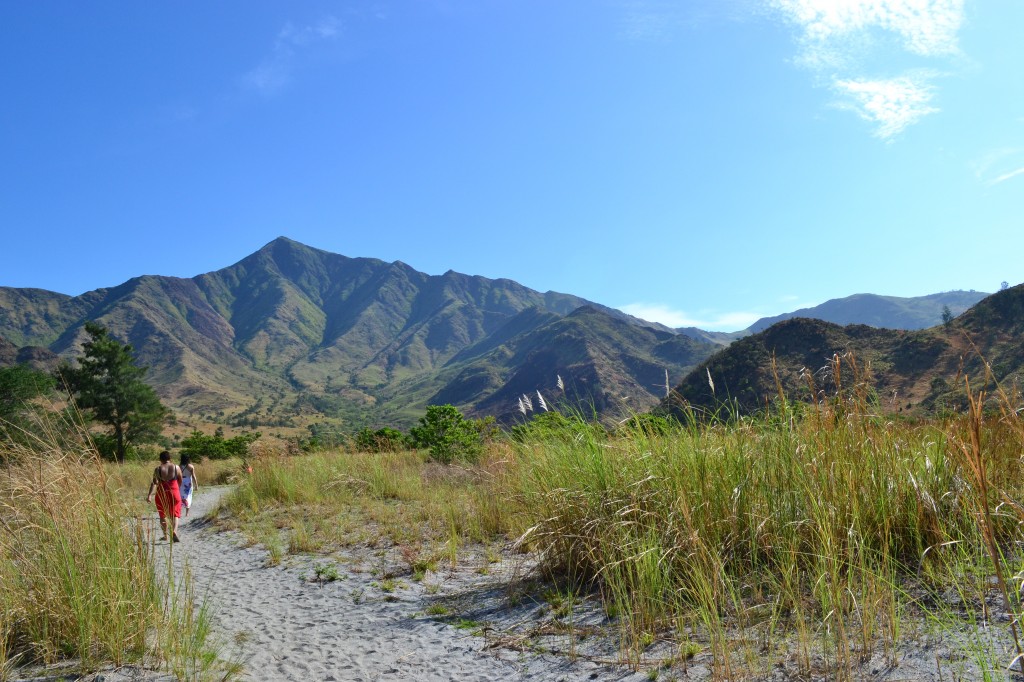 Trekking to the waterfalls
Trekking to the waterfalls
The next day our curiosity prompted us to take a formidable trek to the waterfalls. I have mixed emotions about this part of our trip as I’m not very much into hiking.
Since we woke up late, by the time we left the campsite the sun was high and you could feel the sting of its rays on your skin. En route we walked through tall grass, a forest, and a dried up river bed.
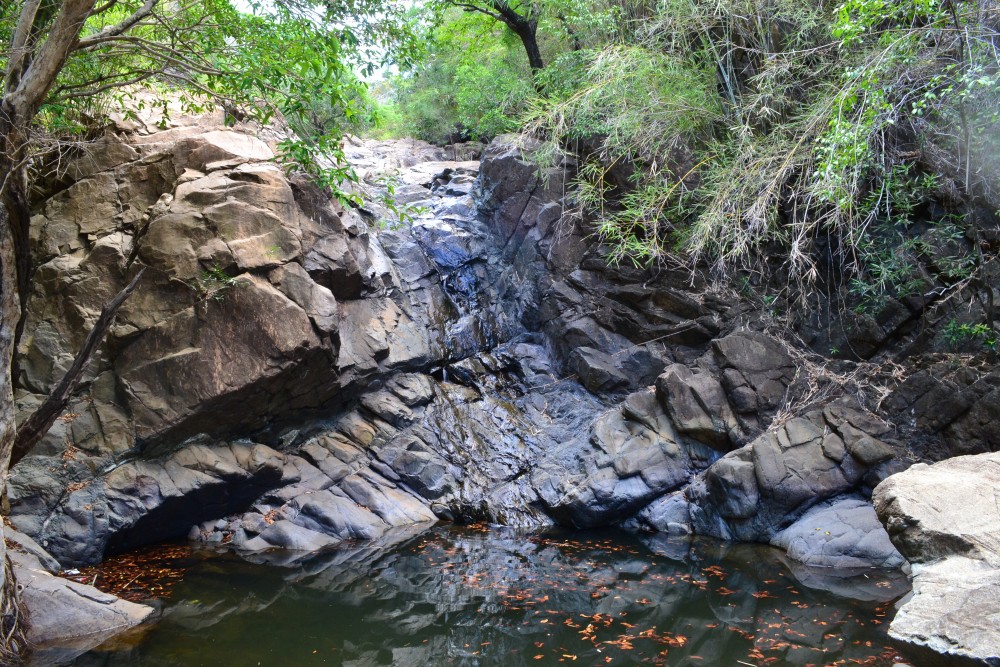
My thoughts began to linger on death by dehydration when we finally arrived at the waterfalls. Apparently, the waterfalls was also dehydrated. All but a trickle of water flowed to the lagoon beneath.
There were three lagoons that were home to tiny fishes and fortunately there were no water snakes, toads, or other repulsive reptiles. A dip in the cool water after the long hike was inviting.
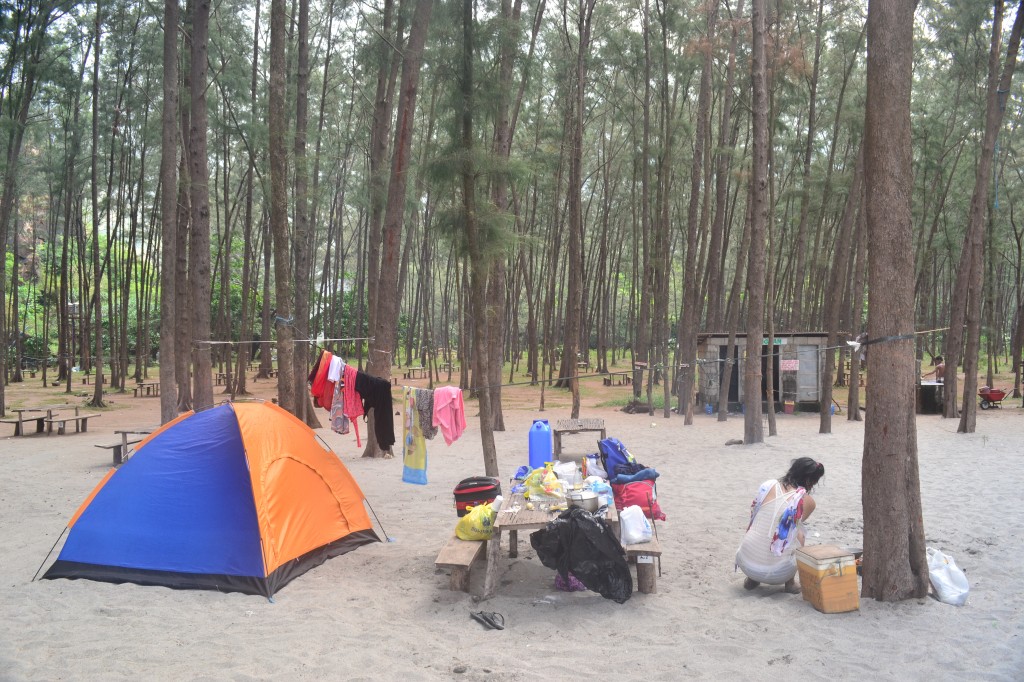
For Day 2, we transferred to Anawangin Cove which we soon discovered, paled in comparison to Nagsasa Cove. But, more campers flock here because it’s closer to Pundaquit Beach. We arrived there on a Sunday afternoon when most of the weekend campers were leaving. It was not a welcoming sight.
Like confetti after a street parade, garbage was scattered all over the place. The parting gift of some unscrupulous campers. It was congested and noisy and it took the locals all afternoon to clean up.
By nightfall, the cove’s natural serenity was restored. Again, my friends and I had a bonfire just by our tent because bonfires were not allowed at the beach. Anawangin was delightful, but if I ever come back here, I would not go on a weekend.
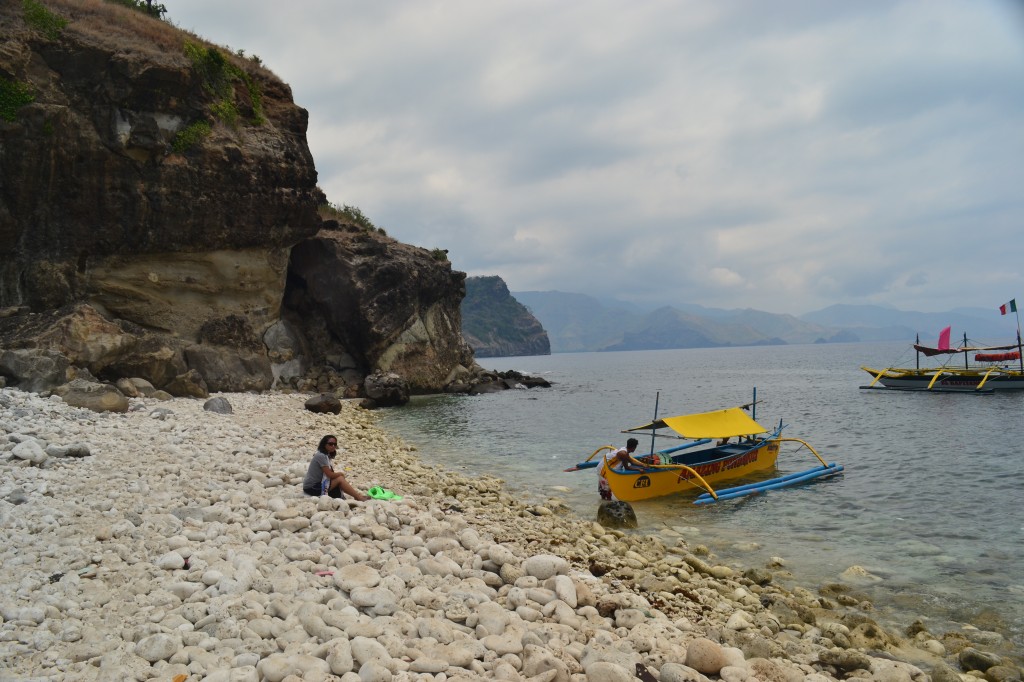
Capones Island
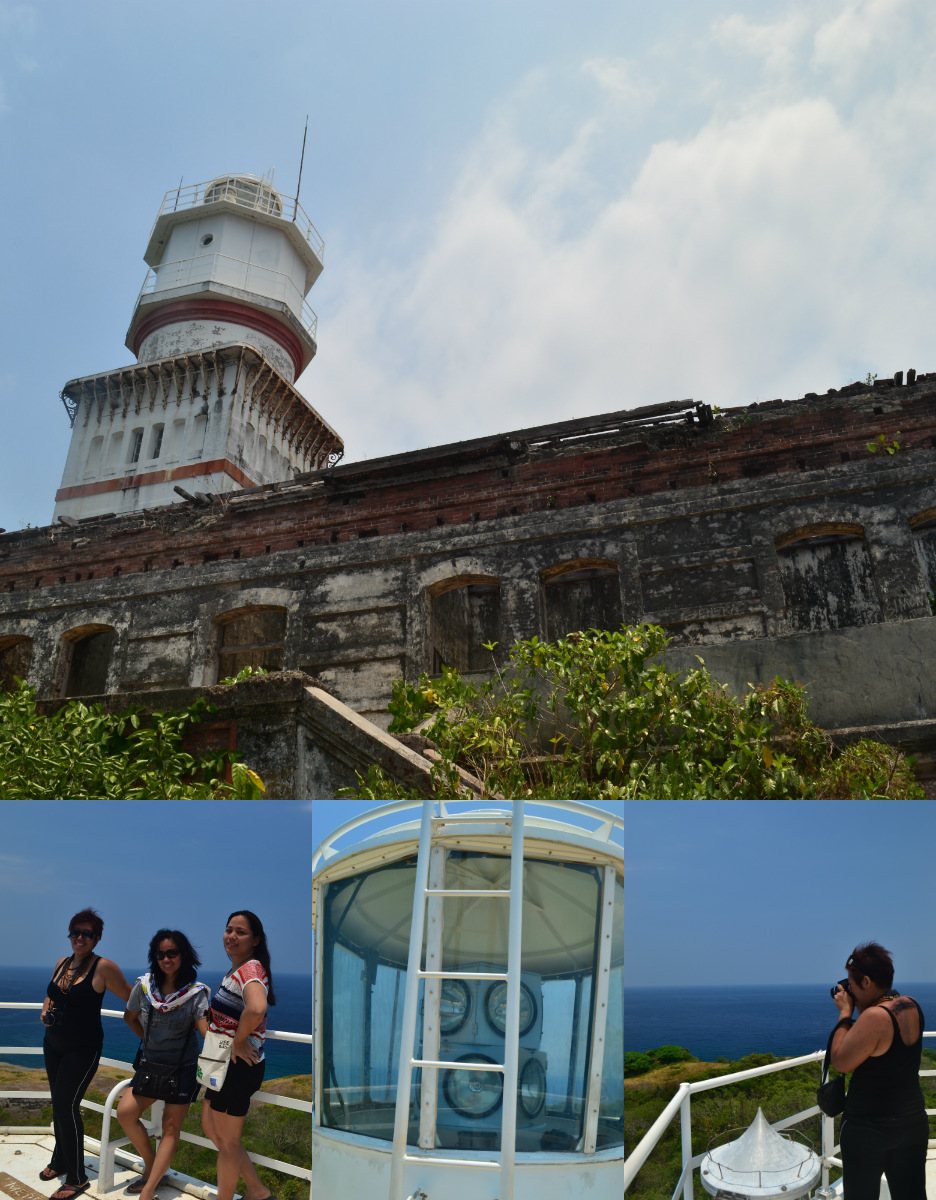
The old lighthouse at Capones Island
Our last day was reserved for a side trip to the smaller islands Capones and Camara. These islands are 15 and 30 minutes away from Anawangin. Our boatman had warned us that if the tide was too strong we may have to cancel, luckily, that morning the tide worked in our favor.
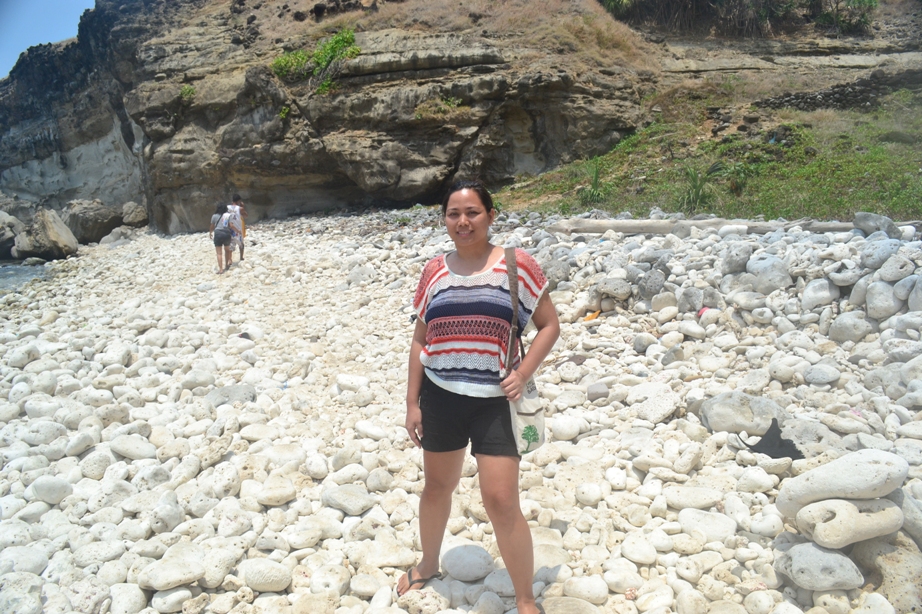
At Capones Island, our man anchored the boat just a few meters from the shore as the ocean floor near the beach was littered with large rocks, so from there we hopped off the boat, got soaked to the hips, and fought our way to the shore. Had we known this, we wouldn’t have wasted time showering at Anawangin and had gone straight away to Capones in our wet clothes.
Capones Island is home to an old abandoned lighthouse, to reach it we again hiked under the piercing sun for about 30 minutes. Our hearts were pounding by the time we reached the tower but the rewarding views from the top was well worth the effort.
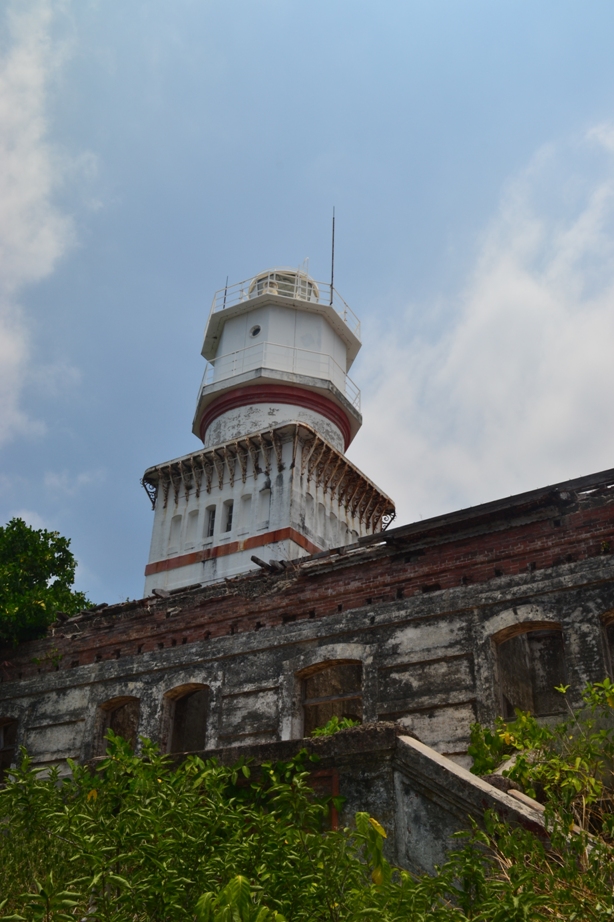
Although the Capones Lighthouse is still actively used to guide boats, its deteriorated condition showed that it is poorly maintained. But, despite years of neglect, the lighthouse and its forgotten history still stands gloriously and continues to draw a steady influx of visitors. We spent some time here admiring the seascapes then proceeded to our last stop, Camara Island.
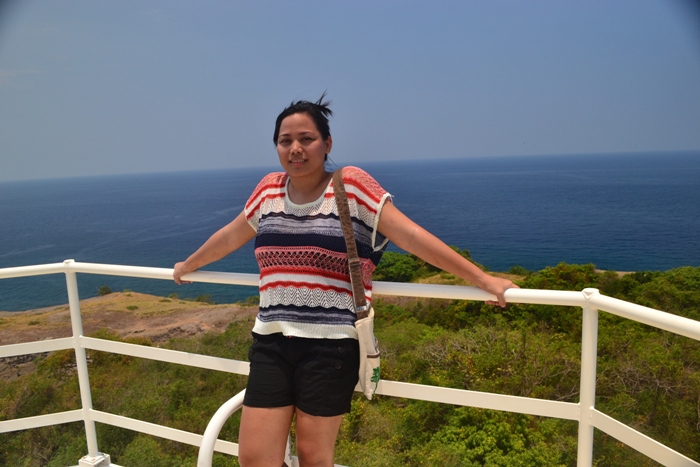
On top of the Capones Lighthouse
Camara is a tiny island on the west side of Capones. It has peculiar rock formations and small sandy beaches. By the time we got there it was noon and we were running behind schedule as one of us had to work later that day, and so we just did a quick 15-minute island tour then set off for Pundaquit Beach, where we showered again for the trip back home.
Check out these Travel Guides for more info on the coolest beaches to visit in the Philippines.
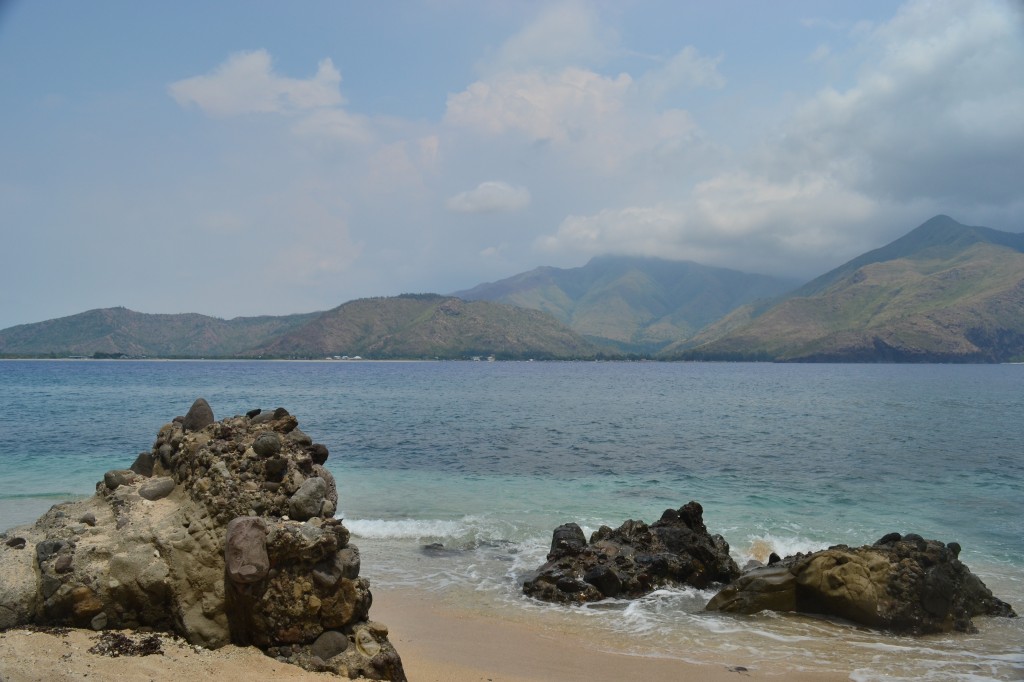
Camara Island
Packaged trips to Nagsasa and Anawanin Coves are plentiful these days and usually include two-way van transportation as well as island hopping and boat fees, camping gear, cooking utensils, drinking water, and other necessities.
~ ~ ~
The remote beaches of Zambales are all about connecting with nature. From dramatic mountain ranges to exquisite beaches and from the remarkable hospitality of the locals, this region has all the elements that make for a rewarding camping experience.
If you found this article useful please pass it on.
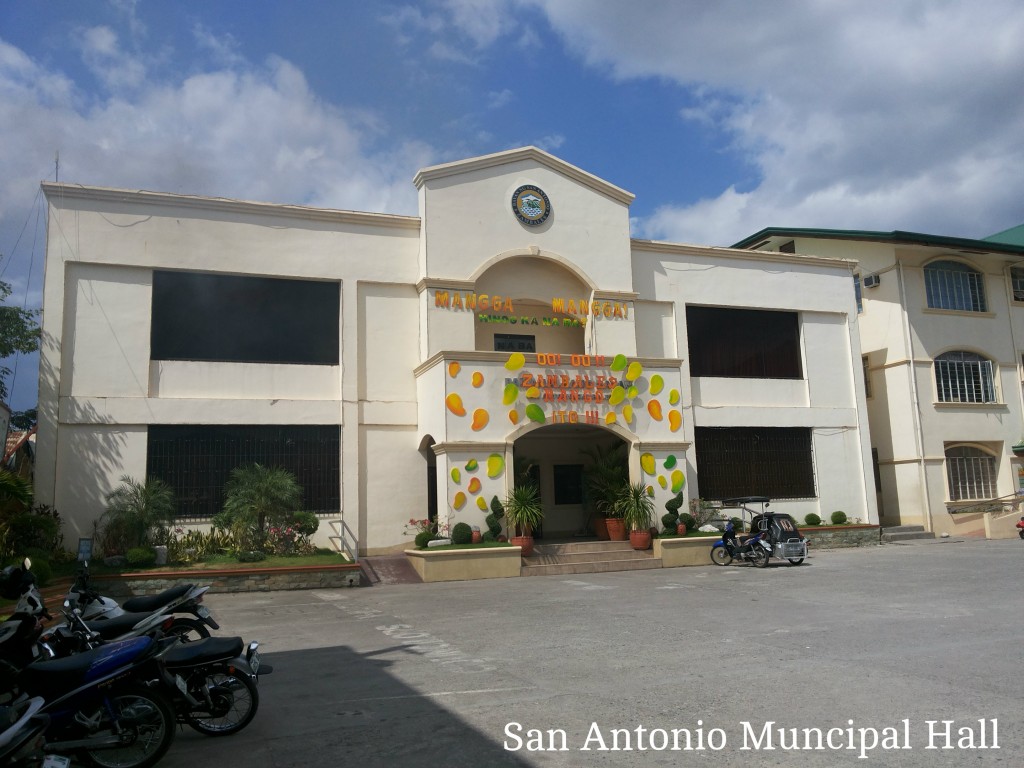
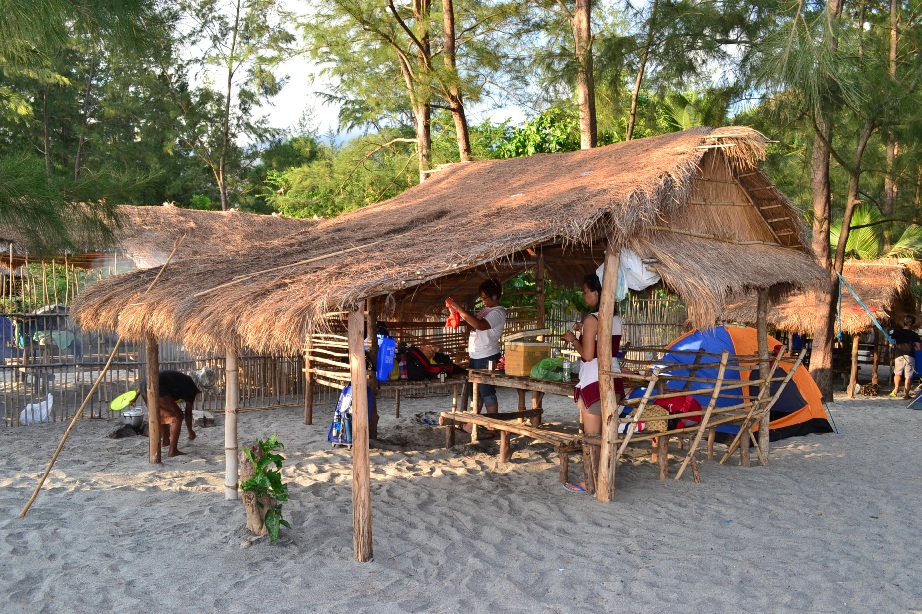
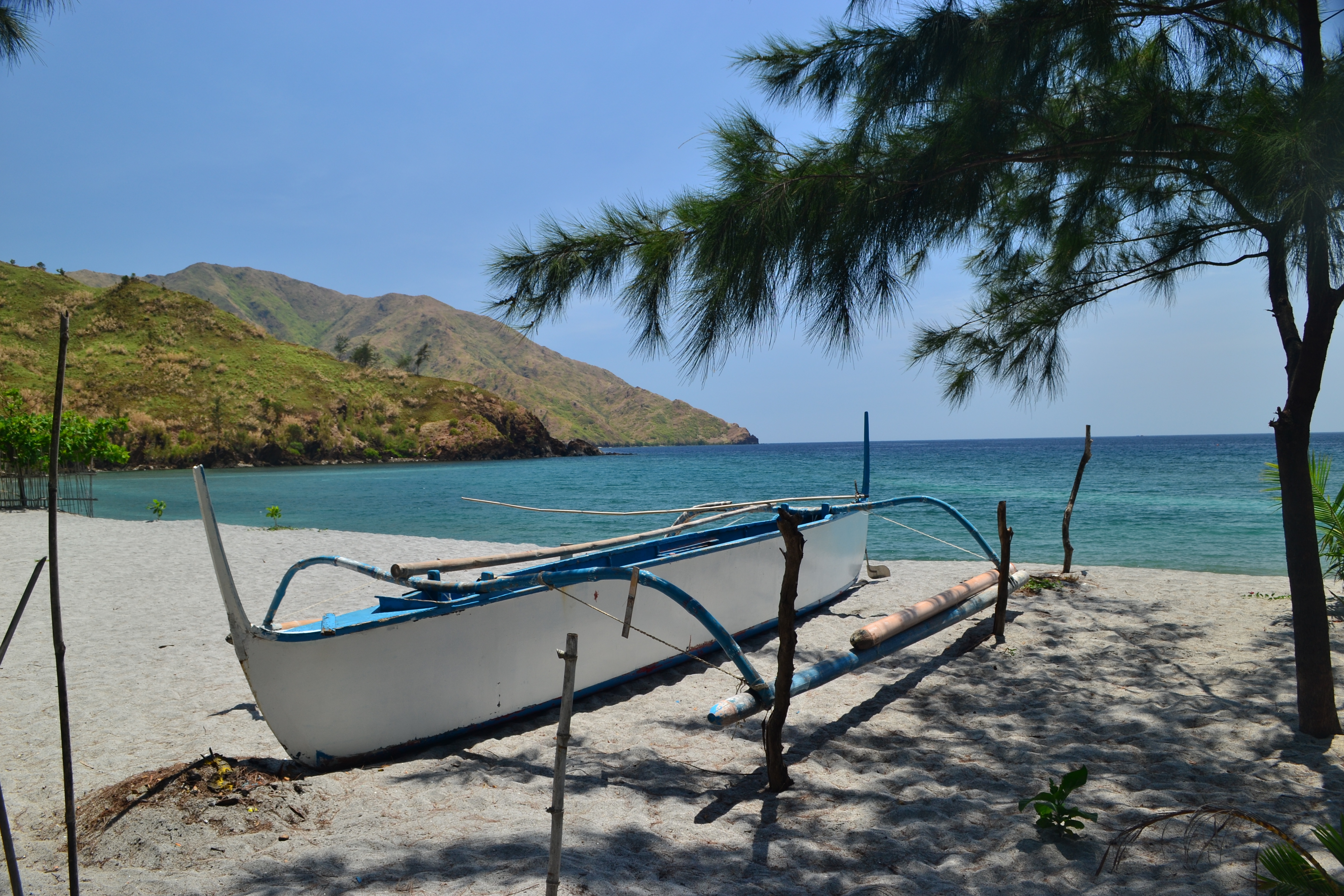

 ">
">

how do you deal when nature calls specially for women (restroom)
Hi Edward,
There are toilets and shower areas at the coves. They’re a bit crude. But they are cleaned regularly. 🙂
Iza
Hello!..good am/eve pomga maam and sir na gustong bumisita sa camara, capones, anawangin, talisayin or nagsasa…direct contact po kami, we offer package and non-package, trekking/hikking is also available and van for rents.
ANANGIN COVE PACKAGE:
4-8 PERSONS – 550 perhead
9-10 ABOVE – 500 perhead
NAGSASA COVE PACKAGE:
4-8 PERSONS – 750 perhead
9-10 ABOVE – 700 perhead
INCLUSIONS:
Boat, tent, entrance, tubig, yelo, bonfire, uling…
For more questions and inquiries pls. Call or tect us at: 09272684714
Salamat po.
How much po galing cavite package ng anawagin at nagsasa pls send sa 09081081263/09162360965
how much po nagsasa at anawangin? please txt me po 09565663620
Hi! I loved your post on nagsasa and anawangin coves. Your blog is very informative. It really help my planning for my boyfriend and I. Just one question. May I know who your contact for the package you booked was? and if so, can you give us the number? Thank you very much. Your reply will be greatly appreciated.
Hi Donita, thanks a lot!! We booked a package with a company called Tripsiders. Sorry, but I didn’t keep the contact details of our coordinator, but I’m sure you can get in touch with them through website tripsiders.com. Have a great trip.
Hello everyone! cno po ang may gustong bumisita sa anawangin, nagsasa, silangin cove sa zambales.tour Package also available.Pls contact this number 09266584153 for more info. Tnx
Christmass promo! anawangin package as low as 499/head. nagsasa package 649/head. For more info, pls contact 09266584153
Goodmorning everyone..
Sa lahat po ng gustong pumunta sa Anawangin,Nagsasa,Talesayen at Silanguin Cove..Islands like Capones and Camara.Maaari nio po aqng kontakin at mabigyan kau.ng affordable price and services.just txt or call:
globe: 09174145526
smart: 09183717878
and look for ms. Jessica or Che-Che
hi I za.. I would like to ask ask for those people who wanted to go on tour but have their private cars, where could they safely park their cars?thanx!
Hello. Im planning for a same trip like yours but we only have an overnight stay for 2pax. The tour package for us 2 is 3k. Its a private tour for us tho. Do u think its a lil bit pricey for an overnight tour?
Hello, if you’re paying 3k/person, yes it’s pricey. But, if the 3k is for both of you, that’s alright. I hope it includes a side trip to Camara and Capones Island. Cheers.
Is it allowed to bonfire still ?
Ive read that they dont allow it anymore. Let me know thanks
Hi ate Iza 🙂 I’m an architecture student and I need some survey regarding possible developments in anawangin / nagsasa cove. Kung kayo po ang tatanungin about sa experience nyo, ano po yung tingin nyo na kulang pa sa anawangin/nagsasa ? or kung ano po yung development ang kailangan para mas mapaunlad pa yung tourist industry doon? Payag po ba kayo kung sakaling magkaroon ng sustainable cultural resort within the island? (a cultural resort that promotes Aetas culture and to help them improve their source of income)
T.I.A.
This will really help me in my Thesis 🙂
Your answer will be greatly appreciated.